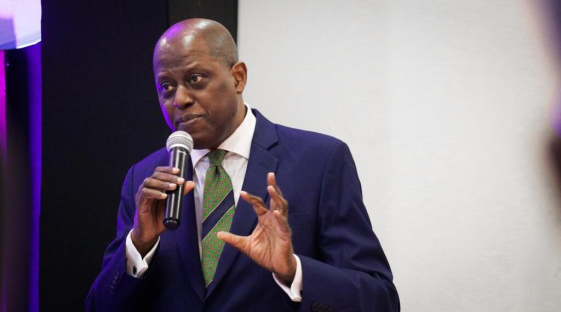Just yesterday, it was announced that the Central Bank of Nigeria’s (CBN) Monetary Policy Committee (MPC) has once again raised the Monetary Policy Rate (MPR) by 50 basis points, bringing the interest rate to 27.25%. This marks another upward adjustment by the apex bank, as it continues its aggressive monetary tightening strategy to control inflation. Additionally, the Cash Reserve Ratio (CRR) for commercial banks has been increased by 500 basis points, from 45% to 50%.
These measures are critical for the Nigerian economy, but what exactly do they mean for your finances? Let’s break it down.

What is the Cash Reserve Ratio (CRR)?
The Cash Reserve Ratio (CRR) is a monetary policy tool used by the CBN. It’s the percentage of customer deposits that banks must hold as reserves with the CBN. A higher CRR means banks have less money available to lend out, which can reduce the overall supply of credit.
What is the Monetary Policy Rate (MPR)?
The Monetary Policy Rate on the other hand is the benchmark interest rate set by the CBN. It influences the rates at which commercial banks lend to businesses and individuals. When the CBN changes the MPR, it affects everything from the cost of loans to the returns on savings and even investments.
By increasing the MPR, the CBN aims to make borrowing more expensive, which in turn reduces the amount of money circulating in the economy. This is done to curb inflation, which has been a persistent issue in Nigeria, driven by factors like rising food prices, high transportation costs, and currency depreciation.
The MPC noted the continued growth in money supply, recognising the need to curtail excess liquidity in the system as well as address foreign exchange demand pressures.
– Yemi Cardoso, CBN Governor
How Does the MPR Work?
To understand how the MPR operates, let’s look at its direct impact on various financial activities:
• Central Bank Lending: The CBN lends to commercial banks at a rate influenced by the MPR. When the MPR goes up, it becomes more expensive for banks to borrow from the CBN.
• Commercial Bank Rates: In response to a higher MPR, commercial banks increase their lending rates. This means businesses and individuals will have to pay more in interest when they take out loans.• Economic Impact: Higher borrowing costs reduce the incentive for businesses and consumers to take loans, which helps in controlling inflation but may also slow down economic activity.
What Does This Mean for You?
As has been established, the Monetary Policy Rate is the benchmark interest rate set by the CBN. It influences the rates at which commercial banks lend to businesses and individuals. When the CBN changes the MPR, it affects everything from the cost of loans to the returns on savings.
1. Borrowing Costs Will Increase
With the MPR now at 27.25%, expect higher interest rates on business loans. This means that monthly payments on loans will go up, and businesses may face more expensive borrowing costs, potentially slowing down growth in various sectors.
Personal loans are also likely to rise, making short-term borrowing more expensive. It might be a good time to reconsider taking on new debt unless absolutely necessary.
2. Savings and Investment Returns
• Savings Accounts: On the bright side, higher interest rates could lead to an increase in returns on savings accounts and fixed deposits. Banks, in their attempt to attract deposits, may offer more competitive interest rates to savers.
• Fixed-Income Investments: If you’re an investor in bonds or other fixed-income securities, this MPR hike could benefit you. New bonds will likely offer higher yields, although existing bonds with lower interest rates may decrease in value.
3. Investment Strategies
• Stocks and Bonds: Stock markets tend to react negatively to higher interest rates, as companies face higher borrowing costs, which can squeeze profit margins. On the other hand, bonds may become more attractive due to the higher yields on offer.
• Real Estate: The real estate sector could experience a slowdown. Higher mortgage rates will likely make property purchases more expensive, potentially cooling off demand and slowing down price growth in the housing market.
4. Impact on Liquidity and Credit Access
With the increase in the CRR to 50%, commercial banks will be required to hold more of their customer deposits as reserves with the CBN. This move limits the amount of money available for lending, which could make it even more difficult for businesses and individuals to access credit. Banks may become more selective in their lending, and interest rates on loans could rise even further.
Why the CBN Raised the MPR
The CBN’s primary goal is to stabilize the Nigerian economy, and inflation control is a key part of that strategy. Inflation erodes purchasing power, making everyday goods and services more expensive for the average Nigerian. By raising the MPR and tightening liquidity through an increase in the CRR, the CBN hopes to reduce inflationary pressure in the long term.
However, this comes with trade-offs. While these measures may help bring down inflation, they also risk slowing down economic growth, as borrowing becomes more expensive and credit availability tightens.
How Should You Adjust Your Finances?
In light of these changes, here are a few strategies to help you navigate the new financial landscape:
• Reevaluate Your Borrowing: If you’re considering taking out a loan or mortgage, it may be wise to shop around for the best interest rates. Alternatively, you could delay non-essential borrowing until rates stabilize.
• Maximize Savings: With interest rates on savings accounts likely to rise, it’s a good time to reconsider your savings strategy. Look for banks/investment platforms offering the most competitive rates, and consider locking in higher returns with fixed deposits.
• Diversify Your Investments: Higher interest rates could create more volatility in the stock market, so it’s important to diversify your portfolio. Consider reallocating some of your investments into fixed-income assets like bonds, which are likely to offer better returns in this high-interest-rate environment.
Final Thoughts
The CBN’s decision to raise the MPR to 27.25% underscores its commitment to fighting inflation, but it also signals a more challenging financial environment for borrowers and businesses. While these moves could help stabilize the economy in the long run, the immediate impact will be felt in higher borrowing costs, tighter liquidity, and potentially slower economic growth.
Diversify Your Investments in A Safety-First Environment


In the wake of the rising CRR and MPR, why don’t you consider diversifying your investments in a safety-first environment? Enter Bravewood, a CBN-licensed investment brand with the sole aim of making your money work for you with the highest returns while prioritizing its safety.
We understand the struggles everyday Nigerians face amidst inflation. That’s why our investment solutions offer a safeguard against rising prices and devaluing currency, with a unique daily compounding feature that maximizes your returns. Choose from our tailored products:
• Prime: Enjoy flexible monthly withdrawals with a 16% annual return on investment.
• Max: Lock in your funds for 90, 180, or 365 days and earn up to 22% annually.
• Child: Secure your child’s educational future with a 16.25% annual return, designed specifically for school needs.
With daily compounding, your investments grow faster, giving you a head start on inflation.
Bravewood is licensed by the Central Bank of Nigeria to provide investments with low risk and high returns for Nigerian professionals.


